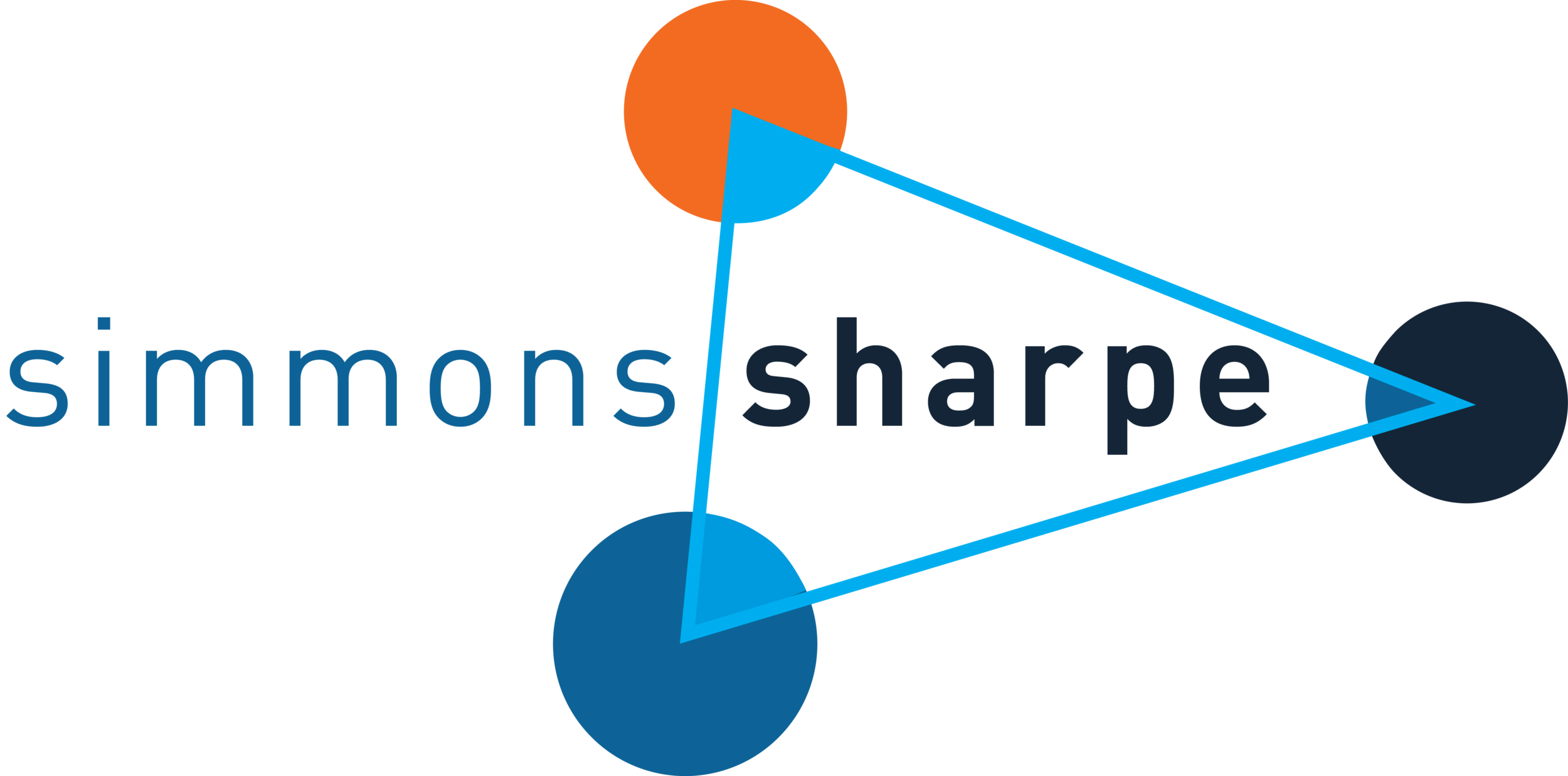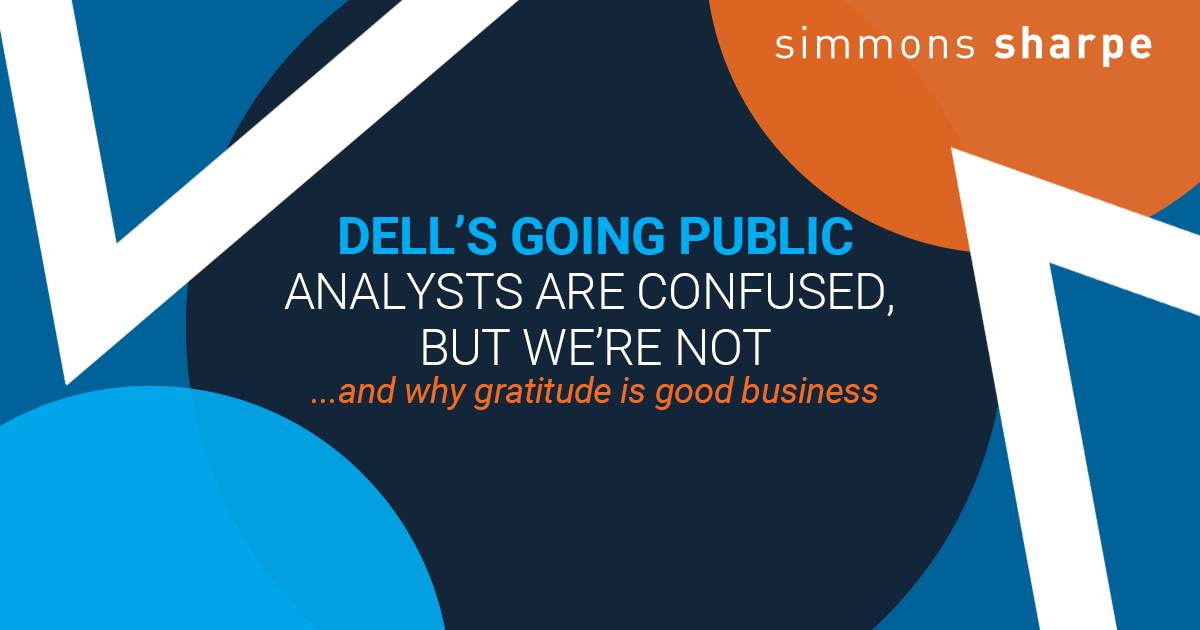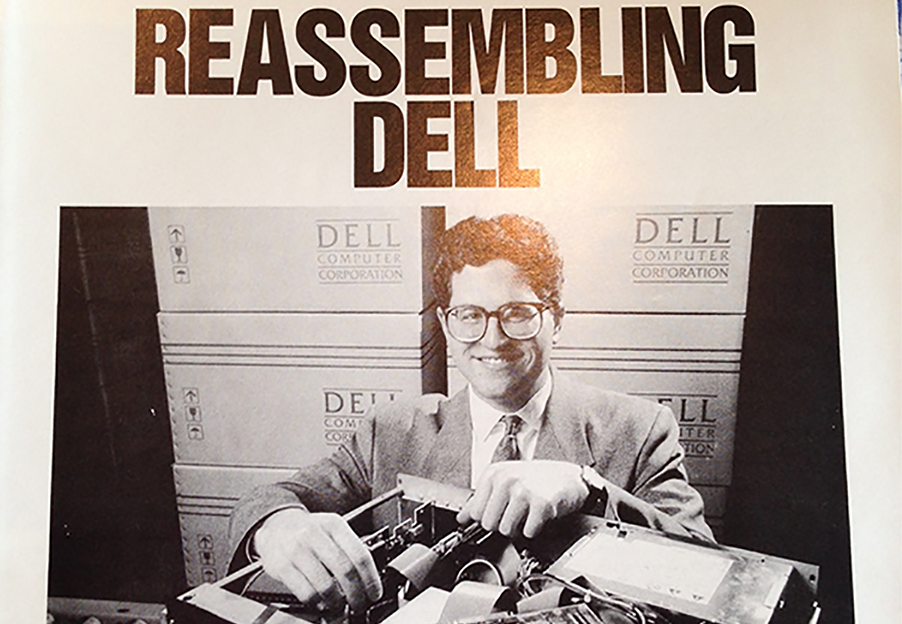Why Did Dell Go Public Again?
Despite the confusion among analysts and the financial press, the reason is simple: liquidity. But not for Dell Technologies, or Michael Dell, or Silver Lake Partners.
On July 2, 2018, Dell announced it would be going public again - with a catch. Voting control would remain in founder Michael Dell's hands. The internet immediately exploded with analysts trying to figure out why, including this video clip from Squawk on the Street, which reminded me of the old Abbott and Costello "Who's on first?" clip. For 15 minutes (don't watch the whole thing), the three business news analysts ask Michael why he took the company public, and he answers, repeatedly, "to simplify the capital structure," an answer that can also be found in Michael's letter to his internal team.
The financial terms are here, and in a savvy bit of cashflow engineering, the transaction will be paid for by a special $11B dividend from VMWare, Dell's 81%-owned subsidiary. Those following along will note that means Dell gets $9B in cash to pay for its own deal.
“Dell will offer either $109 a share in cash or 1.3665 shares of newly issued Class C stock in itself for each share of the tracking stock, known by its ticker, DVMT. The cash portion of the transaction will come from an $11 billion special dividend that VMware will issue to all its shareholders — $9 billion of which will go to Dell.”
It's not the first time Dell's reinvented itself.
Let's break it down. As I wrote in my 2015 book, Reinventing Dell: The Innovation Imperative, a smart Fortune 500 CEO once told me that a company goes public if it needs:
- Liquidity.
- An enhanced reputation.
- A boost to their brand.
Dell Technologies, Michael Dell, his partner Silver Lake, need none of these things, except for perhaps a bit of financial risk management should interest rates rise. Skeptics point to Dell's $40 billion in core debt (see Dell's 10Q for the period ended May 4, 2018, page 80, debt analysis), but Dell kicked off about $1.2 billion in cash flow from operations last quarter and has $15 billion in cash on the balance sheet (see 10Q, pages 79 and 81), more than enough to comfortably pay debt service including interest. Yes, Dell had a net loss of over $500 million last quarter, but that's accounting funny money, not real business results. When you back out the purchase interest accounting adjustments and non-cash amortization, Dell actually made about $1.2 billion in profit last quarter (see Dell's 10Q, pages 65-66, non-GAAP income). Dell's got $15 billion or so of cash on its balance sheet, Michael Dell's worth $20 billion or so personally, and Silver Lake has $39 billion in assets under management. None of these "entities" need liquidity.
And beyond cash, Dell's doing just fine - this $87 billion company is growing 17% year-on-year, has gross margins of over 30%, and net income of 5.4%, on a non-GAAP basis (i.e., excluding all the accounting mumbo-jumbo adjustments - true business results). Those of us who remember the tough years in the PC-only business, with sub 20% gross margins and sub 4% net income, will immediately recognize what a freakin' transformation this is.
Way back when you could fax in your PC order.
As to a need for an enhanced reputation or a boost to their brand, well...no. Dell's an $87 billion company (up from about $55 billion in 2015) and has generated over $1 trillion in revenues since it was founded in Michael Dell's dorm room in 1984. Dell's now #1 in over 20 major categories of IT infrastructure and is gaining share in most of them. During the time period it was public (1984-2013), Dell's stock rose 13,500%, beating the return on the S&P 500 by 27X. The transformation from a PC company to a technology infrastructure leader has largely been completed (one merely needs to notice that the Services business was roughly half the gross margin to realize that) out of the glare of public eye (and resultant pressure to meet the quarterly earnings targets), and Michael Dell will remain in control of his company after going public thanks to the voting power of his stock. Dell is doing well indeed and has been transformed over the last 5 years.
Which brings me back to why Dell went public, and who this liquidity is for. It's obvious Michael Dell is smart, and optimistic. He is also, and has always been, grateful. Grateful for his roots, grateful for what he's learned, and grateful to those who helped him build this $87B tech powerhouse. Dell went public to provide real liquidity for its employees, among several other good reasons. Michael gave stock options to all his employees from the very beginning (late 80s), well before it was commonplace. I remember the all-hands meeting where it was announced that every employee was being granted, that day, 50 stock options. Some factory workers used those 50 options to send their kids to college (see 13,500% return).
Dell's Austin team, 1989.
This is not only heartwarming, it's good business. Every employee was quite literally very, very invested in customer satisfaction and Dell's success. Going public again makes it easy for Dell to issue stock options to all employees, eliminates any "discounts" associated with a "shadow" tracking stock, and allows employees to realize full economic value for their Dell shareholdings. Buried in the May 2018 earnings call with analysts, CFO Tom Sweet makes a reference to the "full value for employees" rationale:
“ ...So I think we thought it was important for the VMware entity to continue to have a public currency, particularly as it relates to demonstration of financial strength, as well as for the — quite frankly, from a talent, talent attraction, talent retention for the types of software engineering talent that they compete with.”
Sweet was talking about Dell's subsidiary VMWare, but Michael Dell then immediately followed that up with:
“...I agree with that... It’s also the reason we took Pivotal (another software-based Dell subsidiary) public...So I think you can all see what’s going on here in terms of exposing value.”
Smart strategy's good business. And as Michael Dell knows, so is gratitude. Watch Dell switch on the afterburners as 100,000 employees start to realize what "exposing full value" for their efforts really means. We ain't seen nothin' yet, folks.




